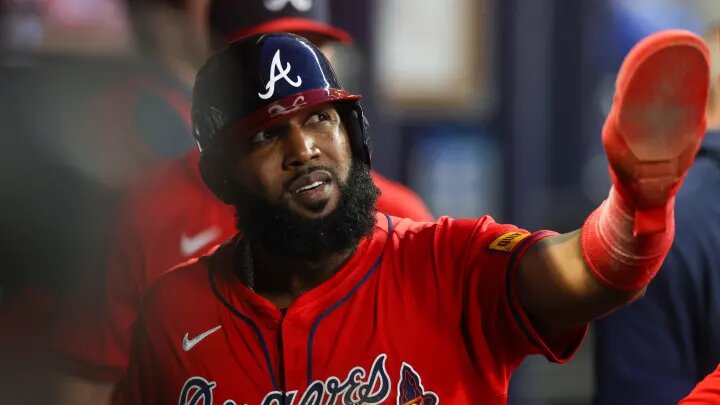
As the Atlanta Braves gear up for another season of baseball, one of their veteran players has made headlines off the field by openly expressing his desire for a new contract. The player, whose name has become synonymous with the Braves franchise, has sparked discussions among fans and analysts about loyalty, legacy, and the business side of professional sports.
The Braves veteran, who has dedicated years of service to the organization, is seeking a renewed contract that reflects his contributions on and off the field. With his current contract set to expire, he sees this as an opportunity to solidify his future with the team and continue his legacy as a key figure in the Braves’ success.
Throughout his tenure with the Braves, the veteran player has been a stalwart presence, embodying the values of dedication, professionalism, and leadership. His on-field performance speaks for itself, but it is his impact in the clubhouse and the community that truly sets him apart as a fan favorite and a role model for aspiring athletes.
The player’s request for a new contract raises important questions about the relationship between athletes and their respective organizations. In an industry where loyalty is often tested by the allure of free agency and lucrative deals elsewhere, the player’s desire to remain with the Braves speaks volumes about his attachment to the team and its fan base.
For Braves fans, the prospect of losing a beloved veteran is met with mixed emotions. On one hand, there is a sense of gratitude for all that the player has done for the organization over the years. On the other hand, there is an underlying fear of what the future might hold if he were to depart for greener pastures.
From a management perspective, the decision to offer a new contract to a veteran player involves weighing various factors, including on-field performance, financial considerations, and the team’s long-term goals. While sentimentality certainly plays a role in such decisions, it must be balanced against the realities of roster management and salary cap constraints.
As negotiations between the Braves and the veteran player unfold, both parties will be tasked with finding common ground that satisfies their respective needs and priorities. For the player, it’s about securing his future with the team he loves and continuing to make a meaningful impact both on and off the field. For the Braves, it’s about honoring a player who has given his all to the organization while also making prudent decisions to ensure the team’s competitiveness and sustainability.
In the end, whatever the outcome of the contract negotiations may be, one thing is certain—the Braves veteran’s legacy will endure long after his playing days are over. Whether he spends the remainder of his career in Atlanta or elsewhere, his contributions to the Braves franchise will be remembered and celebrated by fans for generations to come.